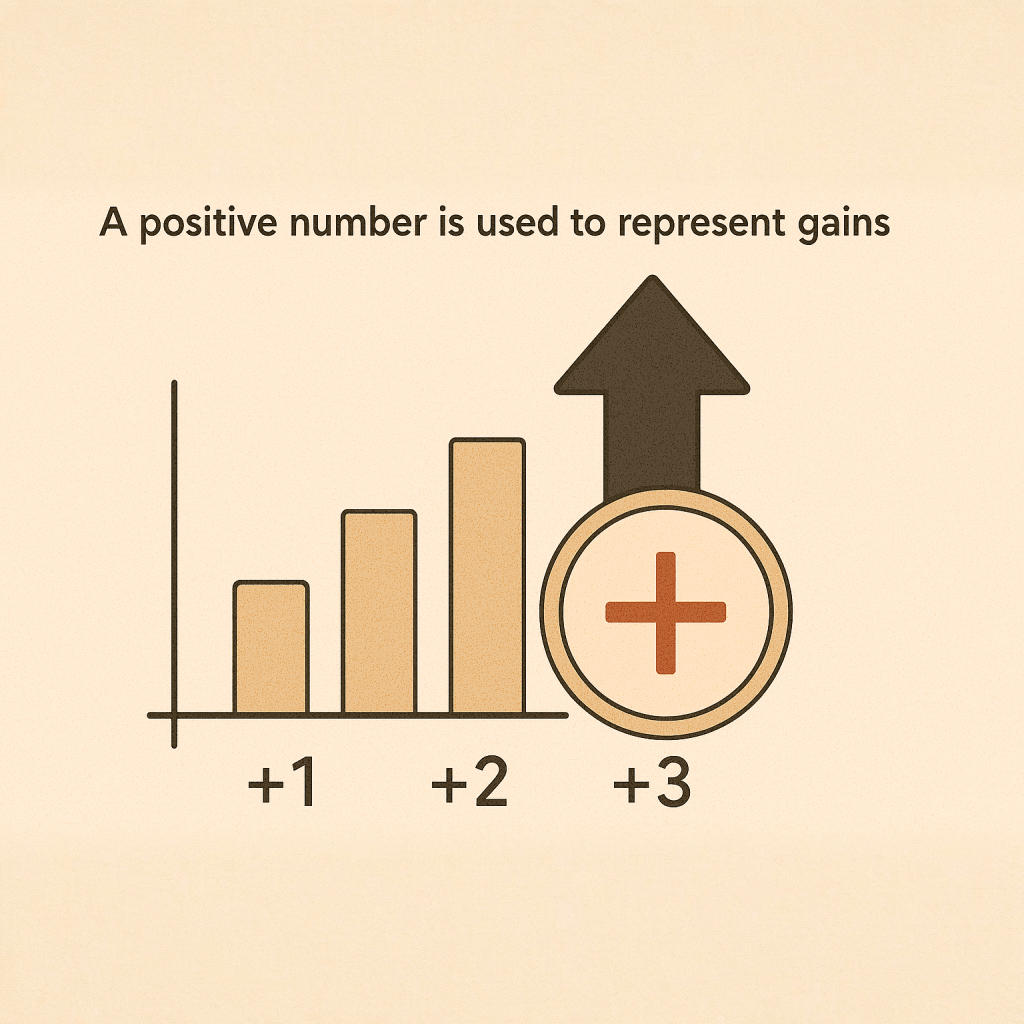Positive
Definition
The term "positive" describes something that is optimistic, affirming, or advantageous. It can also refer to a value greater than zero in mathematics, a confident attitude, or the presence of a condition in science or medicine.
Parts of Speech
- Adjective
- Noun
Pronunciation
American English
- IPA Pronunciation: /ˈpɑː.zə.tɪv/
- Respelling: PAH-zuh-tiv
British English
- IPA Pronunciation: /ˈpɒz.ɪ.tɪv/
- Respelling: POZ-i-tiv
Etymology
The word "positive" originates from the Latin "positivus," meaning "established" or "definite," derived from "ponere" (to place or set). It entered Middle English through Old French "positif."
Derivatives
- Positivity (noun)
- Positively (adverb)
- Overpositive (adjective)
- Positivism (noun)
- Positivist (noun, adjective)
Synonyms
- Optimistic
- Affirmative
- Constructive
Antonyms
- Negative
- Pessimistic
- Critical
Usage
The term "positive" is widely used in contexts ranging from attitude to science and mathematics. For example, "She has a positive outlook on life" or "The test result came back positive."
Related Terms
- Optimism: A general attitude of hopefulness and confidence.
- Affirmation: The act of confirming or stating positively.
- Positivism: A philosophical theory emphasizing empirical evidence.
Detailed Definitions
Adjective
- Optimistic or hopeful: Refers to a favorable attitude or outlook.
- Example: "She gave a positive response to the proposal."
- Indicating presence or confirmation: Refers to an affirmative result or indication.
- Example: "The test was positive for the disease."
- Greater than zero in mathematics: Refers to numbers or values that are above zero.
- Example: "A positive number is used to represent gains."
Noun
- A good or affirmative quality: Refers to an advantage or beneficial aspect.
- Example: "The positive of this plan is its simplicity."
- An affirmative result: Refers to a confirmation or presence of a condition.
- Example: "The doctor informed her of a positive result."
positive



🇨🇳 Mandarin
- 积极的 (confident and optimistic)
- IPA Pronunciation: /t͡ɕi˥˥ t͡ɕi˧˥ tei̯˧˥/
- English Respell: ji-ji-de
- 确定的 (definite and clear-cut)
- IPA Pronunciation: /t͡ɕʰɥɛn˧˥ tɪŋ˥˥ tei̯˧˥/
- English Respell: que-ding-de
🇮🇳 Hindi
- सकारात्मक (confident and optimistic)
- IPA Pronunciation: /səkaːraːtmək/
- English Respell: sakaratmak
- स्पष्ट (definite and clear-cut)
- IPA Pronunciation: /spəʂʈ/
- English Respell: spasht
🇪🇸 Spanish
- Positivo (confident and optimistic)
- IPA Pronunciation: /posiˈtiβo/
- English Respell: positivo
- Definitivo (definite and clear-cut)
- IPA Pronunciation: /defiˈnitivo/
- English Respell: definitivo
🇫🇷 French
- Positif (confident and optimistic)
- IPA Pronunciation: /poziˈtif/
- English Respell: positif
- Définitif (definite and clear-cut)
- IPA Pronunciation: /de.fini.tif/
- English Respell: definitif
🇦🇪 Arabic (Modern Standard)
- إيجابي (confident and optimistic)
- IPA Pronunciation: /ʔiːd͡ʒaːbiː/
- English Respell: ijaabi
- محدد (definite and clear-cut)
- IPA Pronunciation: /muħadːad/
- English Respell: muhaddad
🇧🇩 Bengali
- ইতিবাচক (confident and optimistic)
- IPA Pronunciation: /itibatʃɔk/
- English Respell: itibachok
- স্পষ্ট (definite and clear-cut)
- IPA Pronunciation: /ʃpɔʃʈ/
- English Respell: shoshto
🇷🇺 Russian
- Позитивный (confident and optimistic)
- IPA Pronunciation: /pɐˈzʲitʲɪvnɨj/
- English Respell: pozitivny
- Определённый (definite and clear-cut)
- IPA Pronunciation: /ɐpʲɪrˈdʲelʲɪnɨj/
- English Respell: opredelyonny
🇵🇹 Portuguese
- Positivo (confident and optimistic)
- IPA Pronunciation: /poziˈtivu/
- English Respell: positivo
- Definitivo (definite and clear-cut)
- IPA Pronunciation: /dɨfiˈnitivu/
- English Respell: definitivo
🇮🇩 Indonesian
- Positif (confident and optimistic)
- IPA Pronunciation: /posiˈtif/
- English Respell: positif
- Definitif (definite and clear-cut)
- IPA Pronunciation: /defiˈnitif/
- English Respell: definitif
🇩🇪 German
- Positiv (confident and optimistic)
- IPA Pronunciation: /poziˈtiːf/
- English Respell: positiv
- Endgültig (definite and clear-cut)
- IPA Pronunciation: /ˈɛntɡʏltɪç/
- English Respell: endgueltig
🇯🇵 Japanese
- ポジティブ (confident and optimistic)
- IPA Pronunciation: /poziteibu/
- English Respell: poziteibu
- 明確な (definite and clear-cut)
- IPA Pronunciation: /meːkakuna/
- English Respell: meikakuna
🇻🇳 Vietnamese
- Tích cực (confident and optimistic)
- IPA Pronunciation: /tik kɨk˧ˀ˥/
- English Respell: tik cục
- Rõ ràng (definite and clear-cut)
- IPA Pronunciation: /ʐɔ˨˩ˀ˦ zaŋ˧˧/
- English Respell: ro rang
🇰🇷 Korean
- 긍정적인 (confident and optimistic)
- IPA Pronunciation: /ɡʌŋdʑʌŋdʑʌɡʌn/
- English Respell: geungjeongjeogin
- 명확한 (definite and clear-cut)
- IPA Pronunciation: /mjʌŋʍʌkhɑn/
- English Respell: myeonghwakhan
🇹🇷 Turkish
- Pozitif (confident and optimistic)
- IPA Pronunciation: /pozitif/
- English Respell: pozitif
- Kesin (definite and clear-cut)
- IPA Pronunciation: /keˈsin/
- English Respell: kesin
Positive
Definition
Positive generally refers to the presence rather than absence of a certain quality, condition, or result, or affirming the presence of certain attributes.
Parts of Speech
Positive can be used as an adjective, noun, and less frequently, as a verb in English language.
Pronunciation
- IPA (International Phonetic Alphabet): /ˈpɑːzətɪv/
- American English respelling: PAH-zuh-tiv
- British English respelling: POZ-uh-tiv
Etymology
The term "positive" originates from the Middle French positif and the Latin positivus meaning "settled by arbitrary agreement," which is a term in logic. It is also a derivative of ponere, which means "to place or put".
Derivatives
- Positivity
- Positively
- Positiveness
- Positive reinforcement
- Position
Synonyms
- Affirmative
- Favorable
- Constructive
Antonyms
- Negative
- Detrimental
- Unfavorable
Usage
"Positive" is a widely used term across various fields. In the realm of mathematics, it denotes a quantity greater than zero. In electricity, it represents a type of electric charge. In general conversation, it often refers to optimism or a constructive attitude.
Related Terms
- Positive Charge: A basic property of the elementary particles of which matter consists, measured in terms of the charge of an electron.
- Positive Feedback: The enhancement or amplification of an effect by its own influence on the process that gives rise to it.
- Positive Reinforcement: The process of encouraging or establishing a pattern of behavior by offering rewards.
Detailed Definition
As an adjective, "positive" contains multiple meanings:
- Consisting in or characterized by the presence rather than the absence of distinguishing features.
- Example: The box has a positive weight.
- Constructive in intention or attitude.
- Example: He takes a positive approach to all challenges.
- Showing optimism and confidence.
- Example: She has a positive outlook on life.
- (In science) Indicating the presence of a particular disease, condition, or organism.
- Example: He tested positive for COVID-19.
As a noun, "positive" refers to:
- A good or desirable quality or attribute.
- Example: There are many positives to living in the city.
As a verb, "positive" (although less frequently used) can mean:
- To assert or affirm in a confident manner.
- Example: He positives that he will complete the task on time. (Note: This usage is rare and often replaced by more common verbs such as "assert" or "affirm".)
🇵🇰 Urdu
- مثبت (confident and optimistic)
- IPA Pronunciation: /məsbat/
- English Respell: musbat
- واضح (definite and clear-cut)
- IPA Pronunciation: /wɑːdʒeħ/
- English Respell: waazeh





